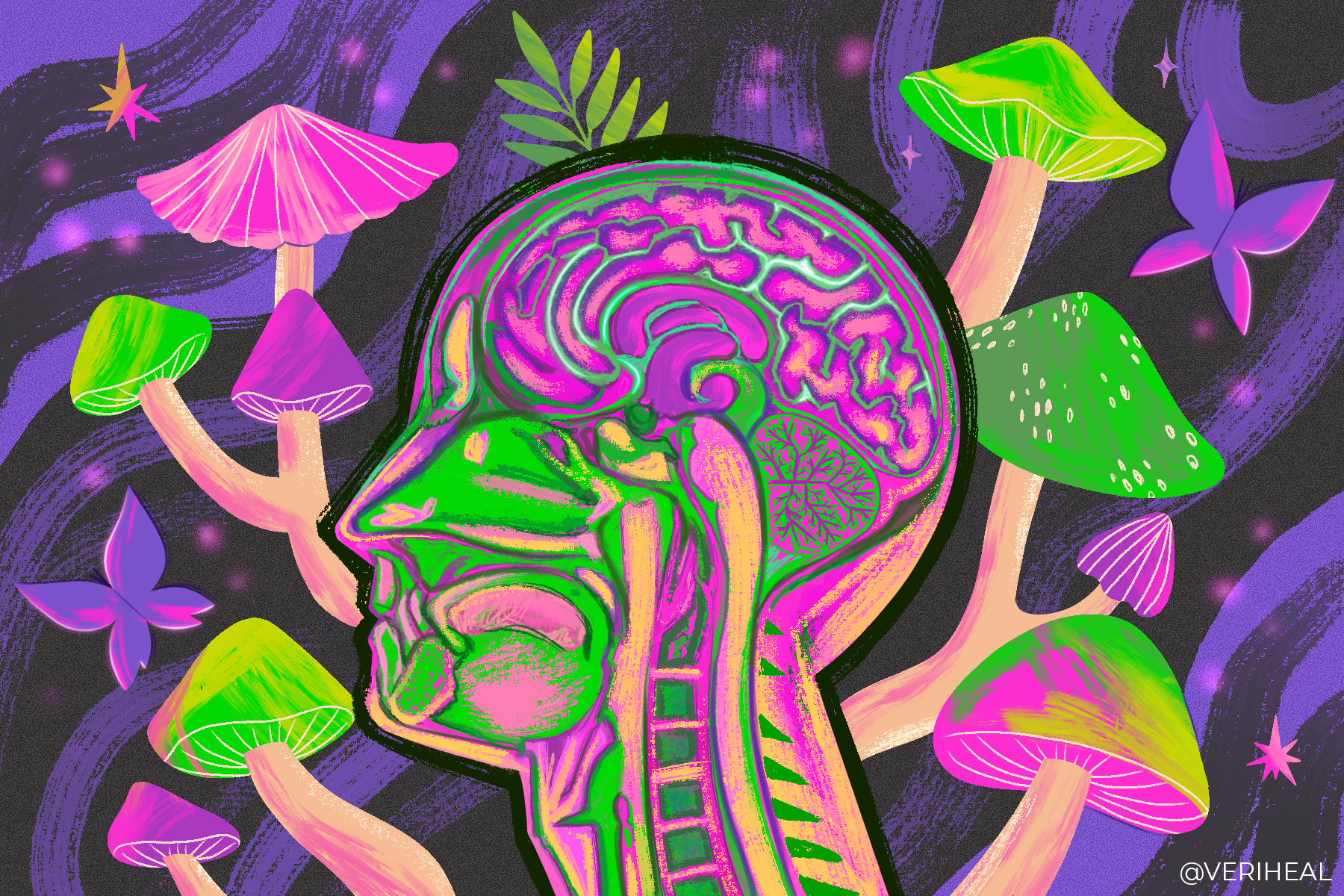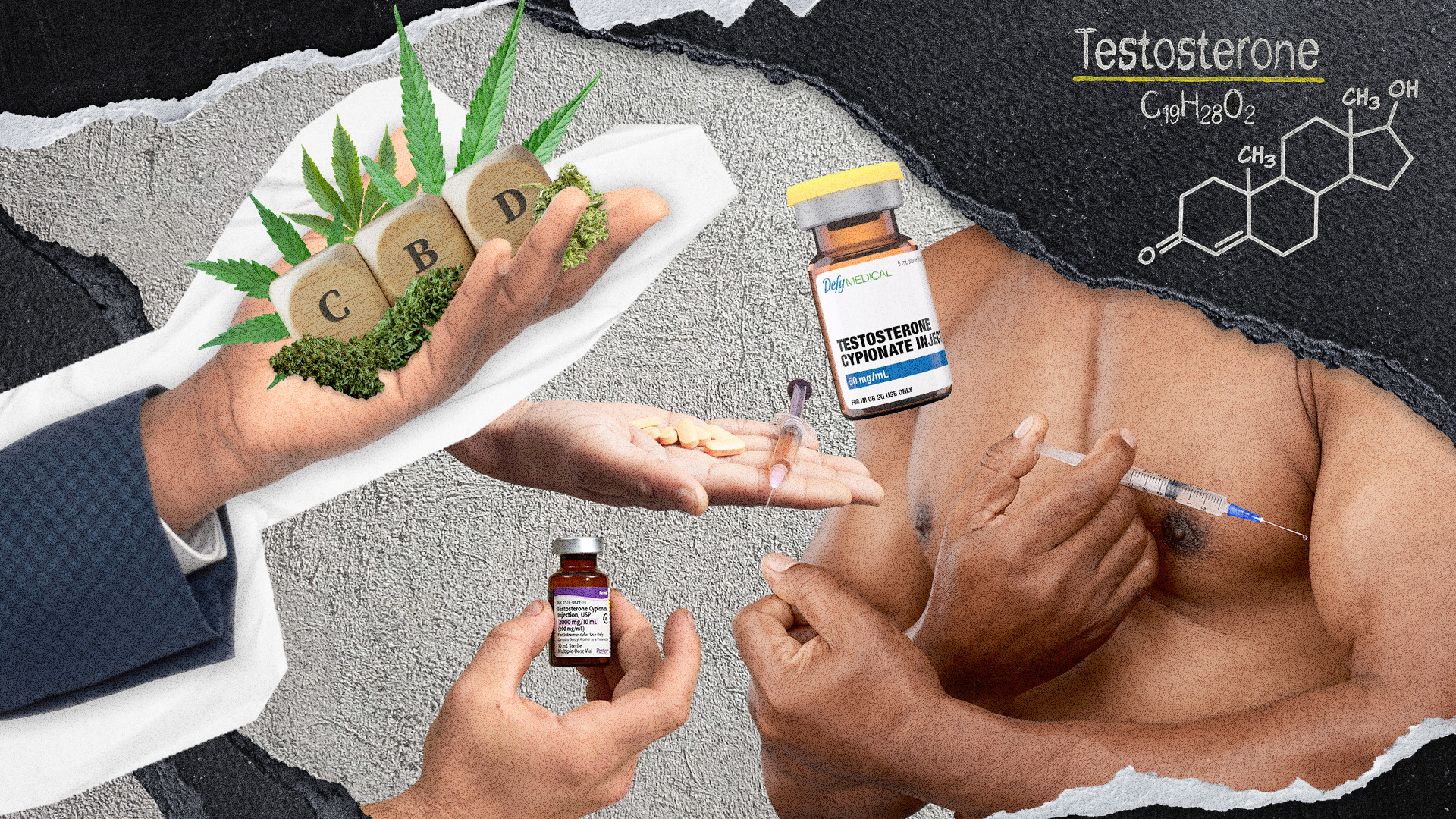Have you ever had to have a medical procedure, such as an MRI scan, that involves lying still in a tiny, confined place while loud noises roar around you?
Although many rely on imaging scans to diagnose illnesses and get treatment of various kinds, getting into the enclosed chamber can be stressful. Now, Australian researchers think they may have found an answer: taking psilocybin before MRIs.
A fascinating new clinical trial demonstrates how this psychedelic compound could make people significantly more comfortable while undergoing MRIs or similar procedures.
What Is an MRI?
Magnetic resonance imaging (MRI) is a vital diagnostic tool in the medical world. Using magnetic fields to penetrate and create cross-sectional images of the body allows doctors and other healthcare professionals to:
- Collect data about the body’s biological functions
- Examine organs without invasive procedures
- Diagnose a wide array of medical conditions
According to a 2011 study published in the International Journal Of Psychophysiology, the Official Journal of The International Organization Of Psychophysiology, some patients panic when confined to such a small area, making the diagnostic procedure difficult or even impossible.
Magic Mushrooms: The Ticket to a Stress-Free MRI?
While comfy MRIs are not its primary goal, this psychedelic research has provided solid preliminary evidence that the psychoactive compound found in magic mushrooms can help accomplish just that.
The data collected so far by the Turner Institute for Brain and Mental Health at Monash University in Australia suggests that psilocybin not only makes the process more comfortable but, as one participant described, MRIs become “magical.”
After receiving a subtherapeutic dose (19 milligrams) of synthetic psilocybin sandwiched between two MRI exams:
- 60% of participants reported that it was one of their most meaningful and mystical experiences
- Almost half of the other participants found it to be one of their most enjoyable and amazing adventures
- About 10% of subjects claimed to feel no effects
- Only about 5% reported unpleasant side effects
Participant Michael Taylor found undergoing an MRI on psilocybin to be a truly “magical experience.” For him, the strange sounds of the machine morphed into an otherworldly melody that swept over him like a wave of happiness.
Why You Should Get Your Medical Marijuana Card
Veriheal has satisfied millions of patients nationwide by giving them access to these benefits
- Larger purchase limits
- Peace of mind
- Enhanced legal protection
- Access to higher potency strains
- Save up to 25% on cannabis purchases
- Skip the line at the dispensary
Taylor explained, “I felt myself smiling, laughing; I’m sure I giggled at one point,” he says. “I was thinking: ‘I can’t believe this is happening. Why don’t more people get to experience this?'”
The profound sense of unity and connection with his surroundings that came with psilocybin expanded beyond the machine, leading him to a deep understanding of being one with all of existence.
New Neuroimaging Study of Psilocybin Made Possible by PsiConnect
Thanks to the Australian government’s $15 million investment in researching psychedelics in 2022 and The Turner Institute recruiting 60 mentally healthy participants for the project, PsiConnect has become one of the most extensive clinical trials involving both brain imaging technology and psychedelics.
This research is a cutting-edge leap forward, leaving researchers hopeful that this, along with findings in prior studies, will shed light on how to possibly treat mental illnesses with psychedelics, as well as develop new drugs.
All imaging and behavioral data will be accessible to the public after the study is complete. This will offer professionals worldwide a chance to gain insight into this research, equipping them with valuable information they can apply in their own contexts.
A Few Final Words
The findings make clear that psilocybin may offer promise in managing stress and anxiety before an MRI, which are common triggers for a negative (if not impossible) experience. However, it is important to note that the study took place with a small sample size under controlled conditions. Therefore, further research would be needed to confirm whether this could succeed on a larger scale.
There is still much yet to learn about how psilocybin can work in a clinical setting. Still, PsiConnect’s initiative provides hope that could one day become a reality, making MRIs more bearable and providing diagnostic answers to millions of people who struggle with the fear of MRI machines.
In any case, there is something special about this science-backed magic mushroom revolution—one can only wonder what lies ahead.
Note: The content on this page is for informational purposes only and is not intended to be professional medical advice. Do not attempt to self-diagnose or prescribe treatment based on the information provided. Always consult a physician before making any decision on the treatment of a medical condition.
Author, Share & Comments
















